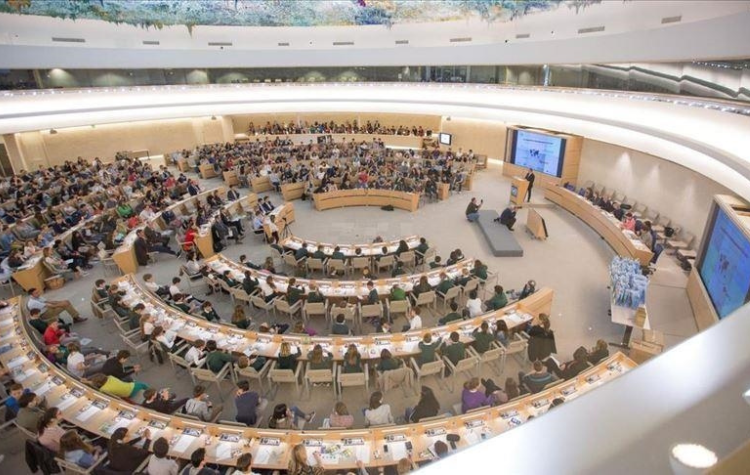50th regular session of the UN Human Rights Council
Panel Discussion on the root causes of violence and discrimination against Rohingya and other minorities in Myanmar
Delivered by Tun Khin
On behalf of Asian Forum for Human Rights and Development (FORUM-ASIA)
15 June 2022
Mr President,
I am a Rohingya from Rakhine State. We welcome this panel discussion on the root causes of human rights violations and abuses against Rohingya and other minorities in Myanmar.
Root causes of violence and discrimination against Rohingya have been aggravated by the attempted coup on 1 February 2021. Nearly 600,000 Rohingyas remaining in Rakhine State face continuing genocide with denial of citizenship, severe restrictions on fundament freedoms including freedom of movement, and access to health, education and other essential services. Over 130,000 Rohingya in Rakhine state are largely cut off from crucial humanitarian aid. Hundreds of Rohingya have been arrested and convicted on false allegations of harbouring those resisting the coup or traveling outside their communities. Rohingya continue to risk their lives on high seas to escape the violence.
The military’s attempted coup has also made conditions unsuitable for safe, voluntary, dignified and sustainable return of Rohingya refugees to Myanmar. In this context, we are particularly concerned about the efforts, with the support of the UN agencies, to begin the process to return Rohingya refugees. Forced return of Rohingya while the architects of the genocide continue to wage war against civilians is dangerous and life-threatening for returnees. The UN and the international community cannot risk the recurrence, under their watch, of the genocidal atrocities committed by the military against the Rohingya in 2017.
Failure of the international community to hold the military accountable for genocide against Rohingya is at the root of the current crisis in Myanmar. Holding the military and perpetrators of genocide against Rohingya accountable through credible international processes, including through referral of Myanmar to the International Criminal Court (ICC) or establishment of an ad hoc tribunal, is essential to end persecution of Rohingya and other minorities in Myanmar.
We call on UN Member States to follow Argentina’s example to initiate criminal proceedings under the principles of universal jurisdiction against perpetrators of Rohingya genocide, and to join the case before the International Court of Justice brought by the Gambia.
We also call on the UN and member states to ensure participation of Rohingya in all deliberations about their future, and empower Rohingya to actively participate in international accountability processes.
We urge the international community to provide all necessary assistance to Bangladesh to ensure protection of fundamental rights of Rohingya refugees in the country including access to health, education, and other basic services.
Thank you



